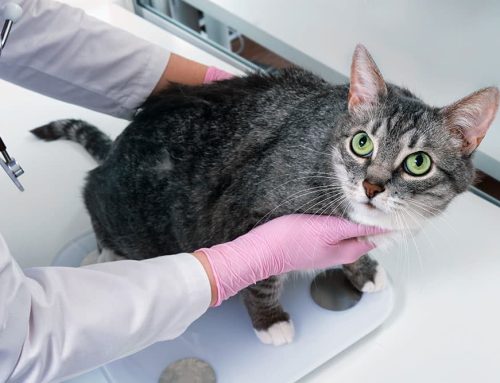An estimated 1 million dogs in the United States are heartworm-positive—a staggering statistic when you consider that heartworm infection is easily prevented. The rise in heartworm cases over the years can be attributed to pet adoption efforts that spread the disease from Southern hot spots to other areas and changing weather patterns that allow mosquitoes to flourish. Incidence in cats is difficult to estimate because many cases go undiagnosed, but it likely also is rising.
Mobile Cat & Dog Vet recommends the monthly administration of a heartworm preventive that can be applied topically or given orally for all dogs and cats. While heartworm disease is uncommon in Central Oregon, it is common in other areas of Oregon and in most of the United States. Consistent, year-round prevention protects pets from an infection that can lead to symptomatic and potentially life-threatening heartworm disease. Coughing, exercise intolerance, weight loss, heart failure, and sudden death are all possible consequences of heartworm disease, but following our prevention do’s and don’ts will help you protect your pet.
Do: Provide year-round heartworm prevention to your pet
Heartworm preventives are designed to be given once a month in an oral or topical form. The medication kills immature heartworm larvae before they can mature to adulthood and cause heartworm disease. The window in which the larvae are susceptible to standard preventive medications is short, which is why the products are given once per month. Intentionally skipping doses during the winter or unintentionally missing doses, can leave your pet vulnerable to infection from larvae that entered their body through a mosquito bite weeks or months earlier. Oregon weather is relatively mild and mosquito activity can be unpredictable, making year-round prevention crucial for all pets.
Do: Test dogs for heartworm infection annually
Dogs should be routinely tested with a blood heartworm antigen test to determine whether adult, female heartworms are present. The American Heartworm Society also recommends annual testing for microfilariae to determine if the dog has circulating baby heartworms. Annual testing is important because an infection can take up to six or seven months to detect. This means an infected pet’s test could be negative the first time around, but come up positive the next year. Detecting infection early, before symptoms set in, gives your pet the best chance for a full recovery. Pets given regular, consistent prevention year-round still need annual testing to ensure the preventive is effective and to maintain the manufacturer guarantee on heartworm products.
Do: Control or avoid mosquitoes when possible
Mosquitoes spread the larvae that lead to heartworm disease, so reducing mosquito exposure can decrease your pet’s risk for infection. Some topical flea and tick products have mosquito repellent properties and are safe for dogs, but can be dangerous for cats. Ensure you follow label instructions closely. Natural mosquito repellent wipes or sprays formulated for dogs and cats also can be safely used when you are outdoors. Try to make your home inhospitable for mosquitoes by removing all standing water sources on your property.

Don’t: Rely on heartworm treatment instead of prevention
Heartworm treatment is available for dogs, but is expensive and stressful for active pets who must be cage-rested for several months, and can be risky. Dogs with many worms can have an allergic reaction when the worms die and release toxins, or a blockage could develop within their heart or lungs. Prevention is the safer, cheaper, and better option. No safe treatments exist for cats, which means prevention is crucial to keep them healthy.
Don’t: Allow cats to go unprotected
The treatment used on dogs is not safe for cats. This means that infected cats, who may be asymptomatic or may develop chronic respiratory issues, weight loss, vomiting, seizures, or death, can be provided only with supportive care and monitoring until the worms die on their own. Severe cases may be eligible for surgery to physically remove the worms, but this is risky and only performed in specialty centers.
Don’t: Forget that heartworm prevention also protects your pet from other harmful parasites
Heartworm prevention not only protects your pet from deadly heartworms, but also controls several intestinal parasites. Some combination products may protect against fleas or ticks as well. Ask your veterinarian which preventive is best for your pet’s needs, and whether another product should be used alongside their heartworm preventive for complete parasite protection.
Don’t let heartworms damage your pet’s health—protect them by giving them a monthly preventive year-round. Contact the Mobile Cat & Dog Vet team to learn more about heartworm disease and prevention.








Leave A Comment